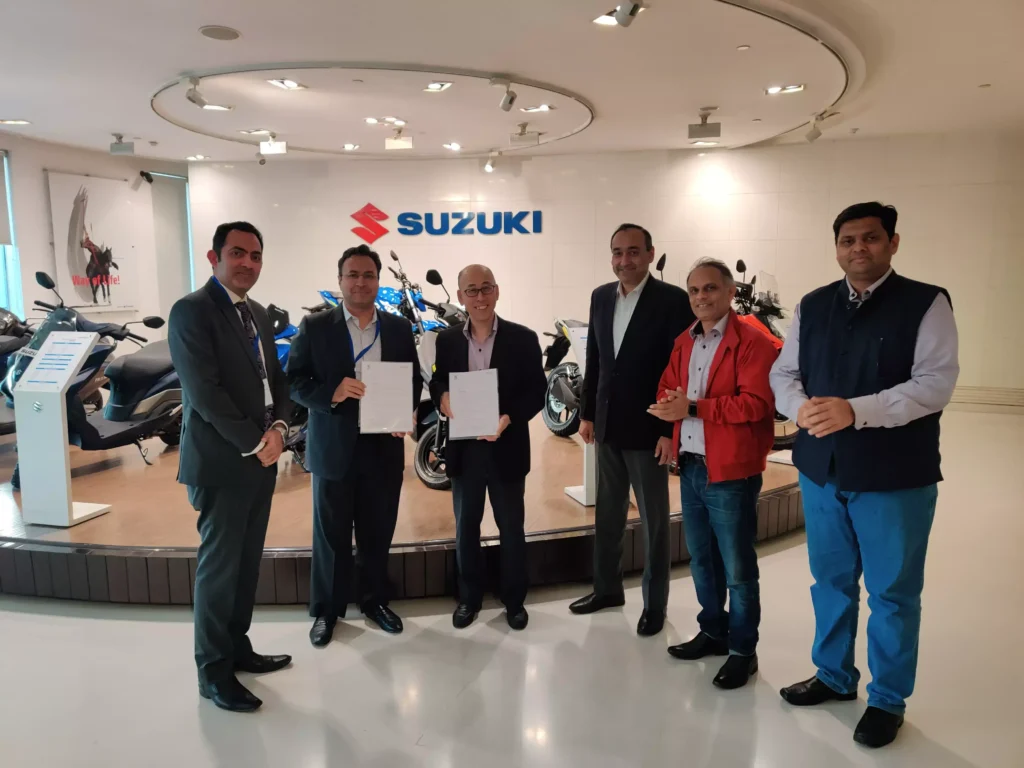Suzuki Motorcycle India to Invest ₹1,200 Crore in New Haryana Plant to Boost Production and Jobs
In a major development for India’s automotive industry, Suzuki Motorcycle India has announced a significant investment of ₹1,200 crore to set up a new manufacturing facility in Haryana. This move is aimed at expanding the company’s production capabilities, creating more job opportunities, and supporting the country’s sustainability goals.

The announcement marks a major milestone for Suzuki’s presence in India and signals the company’s long-term commitment to the growing two-wheeler market.
A Big Step Toward Expansion
The new facility will be located in the IMT (Industrial Model Township) Kharkhoda in the Sonipat district of Haryana. With this new plant, Suzuki Motorcycle India plans to increase its annual production capacity significantly to meet the rising demand for its scooters and motorcycles, both in the domestic and international markets.
At present, Suzuki’s main production unit is located in Gurgaon, Haryana, where the company manufactures popular models like the Suzuki Access 125, Burgman Street, and Gixxer series. However, with rising demand and future growth prospects, the company feels it’s time to scale up.
According to Kenichi Umeda, Managing Director of Suzuki Motorcycle India, “This investment marks a significant step forward in our journey in India. The new plant will help us meet growing market demand and support our long-term vision of contributing to the ‘Make in India’ initiative.”
Generating Jobs and Supporting Local Economy
One of the key highlights of this investment is the promise of job creation. The new plant is expected to generate thousands of direct and indirect employment opportunities for people in Haryana and nearby regions. In a time when job creation is a top priority for both the government and private sector, this development brings hope for many young job seekers and skilled workers.
The state government of Haryana has welcomed Suzuki’s decision, calling it a win-win situation for both the company and the state. With improved infrastructure, ease of doing business, and strong industrial support in place, Haryana has been emerging as a hub for manufacturing investments.
Chief Minister Manohar Lal Khattar expressed his support, saying, “We are proud that Suzuki has chosen Haryana once again for its expansion. This will not only boost industrial development but also create employment opportunities for our youth.”
Focus on Sustainability and Innovation
Suzuki’s investment is not just about expanding production. The company is also placing strong emphasis on sustainability. As part of its global strategy, Suzuki aims to make its new plant eco-friendly, with an emphasis on energy-efficient practices, water conservation, and reduced carbon emissions.
The new manufacturing unit will reportedly adopt modern green technologies such as solar power, rainwater harvesting, and energy-efficient machinery. This aligns with the Indian government’s broader goals under its Sustainable Development framework and its push toward cleaner, greener manufacturing practices.
Moreover, Suzuki is also expected to ramp up its focus on electric mobility in India. While the company has been relatively cautious in entering the electric vehicle (EV) space compared to some of its competitors, this new investment could pave the way for future development in EV manufacturing.
Industry experts believe that the new plant might be equipped to produce electric two-wheelers as well, given the global shift towards cleaner transportation. If that happens, it would mark Suzuki’s serious entry into India’s fast-growing electric mobility segment.
Strengthening India’s Position in Global Exports
India has been playing an increasingly important role in Suzuki’s global operations. With demand for affordable and fuel-efficient two-wheelers rising in international markets, especially in Asia, Africa, and Latin America, Suzuki Motorcycle India is aiming to use its Indian facilities as a global export base.
By boosting production through this new investment, Suzuki can strengthen its export operations and improve delivery times. It also means more Indian-made bikes hitting the roads in foreign countries, enhancing India’s reputation as a global manufacturing powerhouse.
Supporting the “Make in India” Initiative
Suzuki’s latest move aligns well with the Indian government’s “Make in India” initiative, which encourages multinational companies to manufacture in India rather than import. By investing heavily in local production and hiring Indian workers, Suzuki is directly contributing to this mission.
The move also supports the government’s efforts to promote local value addition, improve industrial output, and attract more foreign direct investment (FDI). As Suzuki deepens its roots in India, it sets a positive example for other global brands considering long-term investment in the country.
A Positive Signal for the Two-Wheeler Market
Despite some short-term challenges such as fluctuating raw material prices and economic uncertainty, the Indian two-wheeler market remains one of the largest and fastest-growing in the world. Suzuki’s new investment signals strong confidence in the future of this market.
In recent years, there’s been a shift in consumer preferences towards high-performance, fuel-efficient, and technologically advanced two-wheelers. Suzuki has capitalized on this trend with models like the Access 125 and Gixxer, and the new facility could help the company expand its product lineup further.
Conclusion
Suzuki Motorcycle India’s ₹1,200 crore investment in a new manufacturing plant in Haryana is more than just a business expansion. It represents a major leap forward in boosting local employment, improving sustainability, and reinforcing India’s position as a key player in the global manufacturing landscape.
With plans to increase production, support local communities, and possibly explore electric mobility, Suzuki’s latest move could reshape its future in India and beyond. As construction begins and operations take shape in the coming years, all eyes will be on Suzuki to see how this ambitious investment unfolds.






